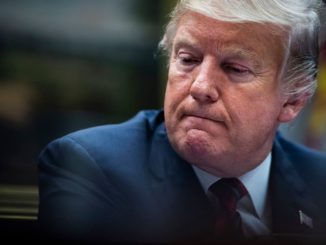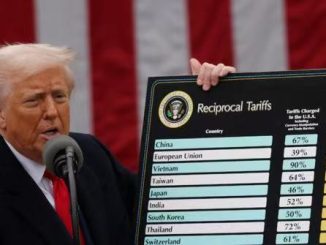
Topic
In March 2025, an Australian man who had lived in the United States for more than a decade was detained upon entering the United States on a legal US work visa and deported more than thirty hours later. During his detention, he was rudely interrogated.
There are more than one such cases. In February, British tourist Rebecca Burke was stopped, interrogated and branded an illegal alien by the US Immigration and Customs Enforcement (Ice) division when attempting to leave the US. Germans Lucas Sielaff, Fabian Schmidt and Jessica Brösche were all detained upon entering the US. A Canadian, Jasmine Mooney, said she was detained by Ice for nearly two weeks and deported, despite having a work visa.
Australia’s Smartraveller website advises visitors to the US that a valid visa “doesn’t guarantee entry to the United States”. After neighboring Indonesia and New Zealand, the United States is the third most popular destination for Australian travelers, with 639,000 Australian travelers traveling to the United States in 2024.
US internal affairs are never just about the US itself, especially for those countries that are closely connected with the US. In fact, it is difficult to figure out the meaning behind this series of border horror stories, whether it is an overreaction to the immigration issue or a deeper political purpose. But it cannot be denied that all this has violated US law.
The blockade of the border is not only de facto, but also reflected in economic trade barriers and cultural communication barriers. What happened at the US border reflects that the US attitude towards multiculturalism is different from the past.
Genre: News Commentary
I want to write a news commentary about the impact of the Trump administration’s actions on Australia, focusing on the cultural level. The United States has always been the world’s cultural leader, influencing the world with its values for decades, especially for Australia, a country that regards good diplomatic relations with the United States as a basic national policy.
The United States has always been the world’s cultural leader, influencing the world with its values for decades, especially Australia, a country that regards good diplomatic relations with the United States as a basic national policy. Since Trump took office, the United States has canceled funding for scientific research, and Australian scholars have given up academic travel. The United States has begun to stop explaining its values to the world. And we don’t know if this is just the beginning.
Publication:
The Guardian Australia Version
Target Audience:
Australian residents
Multimedia and Interaction:

Photos: Unlike all the other stories about him, Trump’s portrait won’t be used an illustration, because this story should be about Australian people and how American values are changing in Australia.

Data:In this article, data is an important endorsement content. Therefore, I will use interactive data presentation methods (such as using data wrapper) to present data.
Hyperlinks;
Video;
Recourse:
Probable Interviewees: cultural practitioners; university scholars;
Documentary: Australian Bureau of Statistics; think tank statistics;
Online source: News media





This is a powerful and relevant topic that deserves close attention, and this topic is very close to the life of Australia. This article is timely and cites many real examples, which are close to people’s lives and resonate with people. I think you could go into more detail about why you chose to publish this article in The Guardian Australia Version. Also provide a deeper analysis of target audience and the use of multimedia. You need to provide some strong evidence to support your opinion. In conclusion, this is a culturally aware review that successfully blends reporting with personal and national reflections, and the use of multimedia elements is excellent. It would have been even better if some solid evidence had been added.